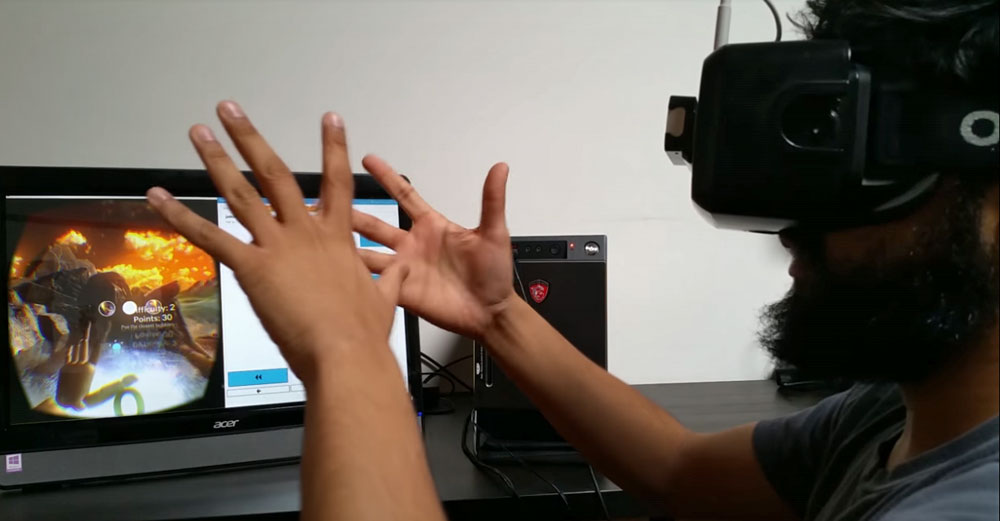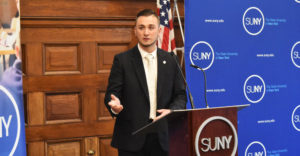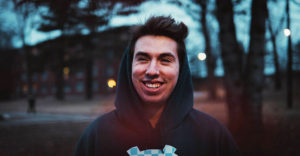
The creative minds behind SUNY Research do many things that improves the lives of Americans every day. Inventing, designing, and creating new products and resources is hard work, but it’s only the beginning. Those products then need to make it to market somehow to become available to the people they are intending to help. A common way new research initiatives reach market for commercial success is through licensing partnerships and agreements, which can bring returns for both sides of the deal.
Startup company Vivid Vision, Inc. has signed an exclusive license agreement with The Research Foundation for SUNY (RF) to employ a new device to treat lazy eye and other disorders of binocular vision. The agreement will help develop promotion for the new product.
The patented system was invented by Benjamin Backus, an associate professor at the SUNY College of Optometry, with his colleagues Kenneth Ciuffreda and Diana Ludlam. It works to address Amblyopia, or lazy eye, which is a developmental problem in the nerve connecting the eye to the brain. The new system uses eye tracking to provide direct and precise binocular visual stimulation at known locations on the retinas of both eyes simultaneously. The idea is to train neurons to function appropriately.
“Hebbian learning, which strengthens synaptic connections, is an important mechanism of neuroplasticity – the brain’s remarkable ability to change its structure and organization to compensate for illness or injury and adjust to new situations,” Backus explained. “It’s exciting to see this basic science research idea being developed in a real-world product to help people see better.”
Vivid Vision is a California-based company that is building a vision care platform that works with new virtual reality technology to treat amblyopia, strabismus (the most common cause of amblyopia), and disorders of binocular vision. Backus, whose work at the SUNY College of Optometry focuses on understanding how binocular vision works, joined Vivid Vision as Chief Science Officer. He is using his expertise to make sure the Vivid Vision system is using the cutting edge of vision science.
“We believe eye tracking is integral to the next generation of treatment tools for binocular dysfunction such as amblyopia, strabismus, and convergence insufficiency,” said Vivid Vision CEO James Blaha. “We couldn’t develop these new tools without collaboration with the Research Foundation for SUNY and the licensing of their patent. Having Dr. Backus as our Chief Science Officer at Vivid Vision ensures we can translate this exciting technology into clinical practice.”
“The research on binocular visual function that is the basis of this technology was conducted as part of SUNY Optometry’s active research mission on the eye and vision,” said Dr. David Troilo, vice president and dean for academic affairs at SUNY College of Optometry. “Translating our research efforts to improvements in patient care is a major goal at the college. We are very pleased that Vivid Vision will help us make this a reality for patients with these conditions.”
We first learned about Backus’s work on Amblyopia in 2015 when he was involved in another study to find a fix for lazy eye. His work with Vivid Vision and SUNY is now bringing all this work full circle, from ideas, to lab, to market.
Research at SUNY produces more than 200 new technologies a year. The RF protects the valuable intellectual property generated at SUNY campuses and works with industry and businesses, like Vivid Vision, to translate research discoveries into commercial products that benefit society and spur economic development.




wow. sounds amazing. i have always been exited about the vr effects on our everyday life but didn’t expect it to be able to help medical conditions.